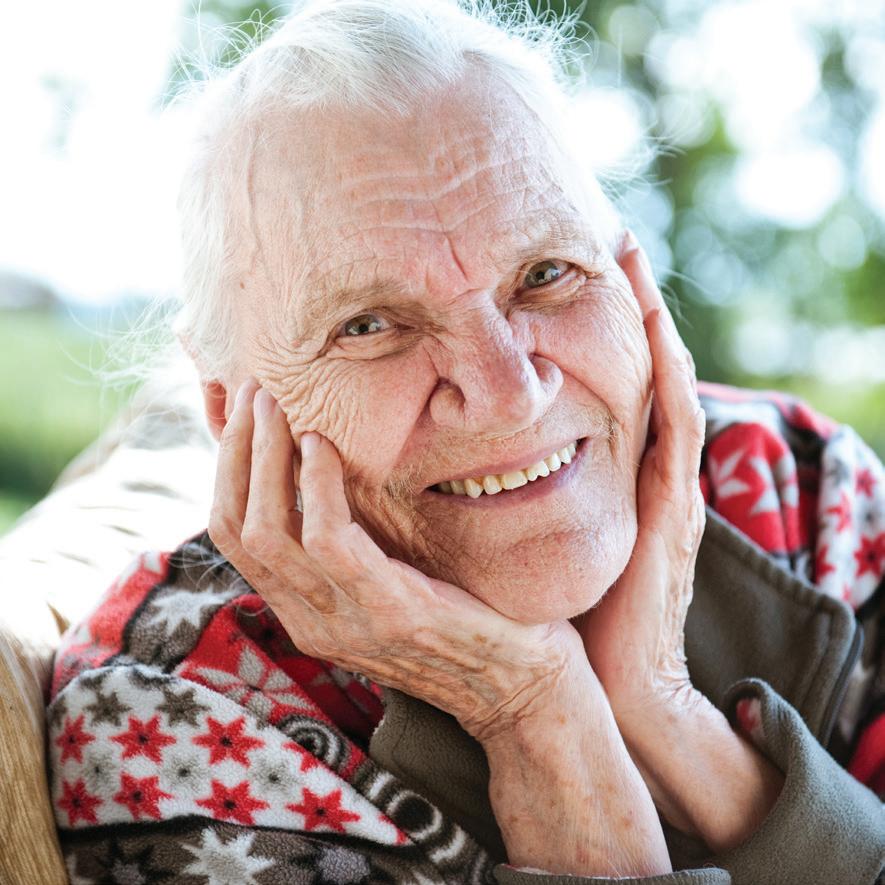
2 minute read
CARING FOR OUR COMMUNITY’S HOLOCAUST SURVIVORS IN 2022
This year, JSSA helped survivors feel safe and supported in their homes with care management, home care assistance, nutrition support, transportation to medical appointments, financial assistance for medical needs, and pro- bono dental, optical, hearing aid, and advance planning services. We also helped clients feel connected to their community by providing social and recreational programs to alleviate isolation.
JSSA’s care managers once again offered regular in-person home visits following more than two years of pandemic-related virtual support for needs beyond home care, which remained in-person throughout the pandemic. The isolation of the pandemic triggered historical fears and trauma for many survivors. As we began to emerge from the pandemic, JSSA helped survivors reengage in meaningful social connections in the community including participation in JCC and adult day programs, concerts, cultural events, and regular medical and dental appointments.
Advertisement
We also continued to offer online services that brought meaning and connection to the survivor community during the first years of the pandemic when in-person activities were suspended.
• The successful Uniper program, a virtual socialization initiative offered in English and Russian and introduced during the pandemic, reached 126 individuals with the support of a generous grant from the Network of Jewish Human Service Agencies (NJHSA), which is funded by the Jewish Federations of North America (JFNA) and the U.S. Department of Health and Human Services Administration for Community Living.
• Other pandemic-era programs that were introduced to increase socialization and connection in place of in-person gatherings were valued and appreciated by clients. These include home delivery of gift baskets during Hannukah and Victory Day, which included beautiful blankets and warm scarves generously donated by staff and volunteers, and flowers and cards on birthdays and other celebratory milestones.
Jssa Holocaust Survivor Program Services
• Care Management
• Home Care (personal care, homemaker services, nursing assessments)
• Transportation to medical appointments
• Financial assistance for medical needs
• Nutrition and food security support (grocery gift cards, Meals on Wheels)
• Socialization
PRO BONO
• Optical
• Hearing
• Dental
Services
• Advance Care planning
Alice* is a 99-year-old Holocaust survivor living in Washington, DC. Born in Berlin, she was 10-years old when Hitler came to power. During the war, Alice was forced to work at a Siemens factory for two years. Facing constant fears of deportation, she went underground and had many close calls with the Nazis during two years on the run. Many of her cousins, aunts, and uncles were deported and killed. Alice came to the U.S. with her husband in 1947 and started a new life. Her daughter shared:

“My mother has really been enjoying her Uniper service. Since she is primarily homebound, Uniper offers her a chance to “go to a concert” or take a “tour of a museum” or “travel to a country.” These are all things she did in the past, and Uniper helps to enrich her life now. She also enjoys the live Shabbat service, communing with other friendly Jewish individuals and singing the melodies that keep her connected to her Jewish life.”
Twin sisters Lubya* and Sasha* share a subsidized apartment in Northern Virginia. Born in Minsk in 1936, the sisters were evacuated from Belarus when the Nazis advanced. They survived the war in a small village in the Urals where their mother, who had been a physician, worked in the fields of a collective farm and their father served in the Soviet army. The family lived in a shed with animals and had no access to heat, so the sisters




